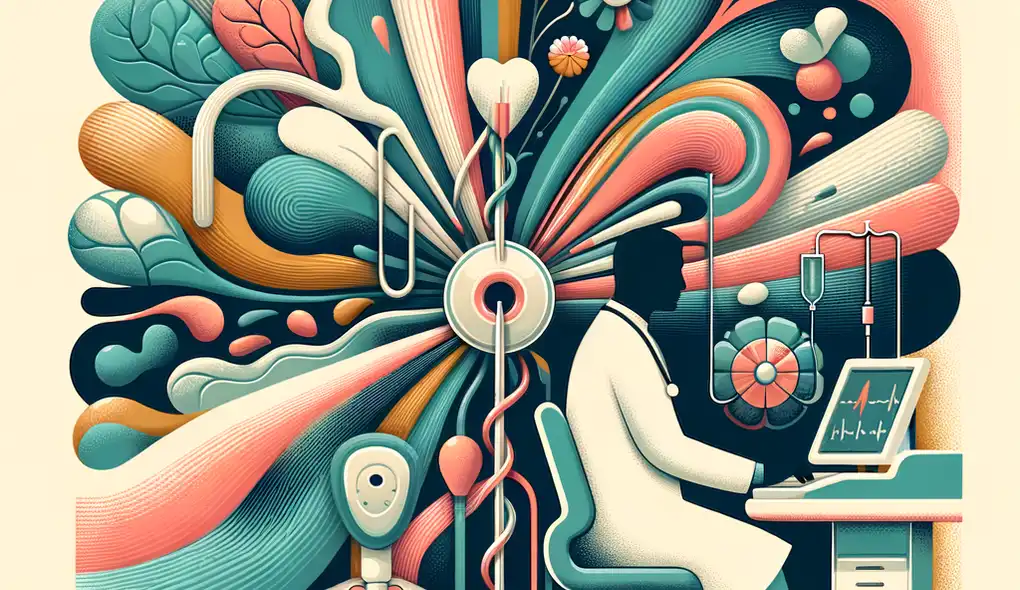How do you handle stress and pressure in your role as an interventional radiologist?
Interventional Radiologist Interview Questions
Sample answer to the question
In my role as an interventional radiologist, I handle stress and pressure by prioritizing my tasks and staying organized. I make sure to plan my day ahead, so I know what needs to be done and when. I also practice effective communication with my team, ensuring that everyone is on the same page and working towards a common goal. Taking breaks and practicing self-care is important to me, as it helps me recharge and refocus. Additionally, I stay updated on the latest advancements in radiological technology and interventional procedures, which helps me feel confident in my abilities.
A more solid answer
In my role as an interventional radiologist, I have developed effective strategies for handling stress and pressure. One of the key factors is prioritizing tasks and being organized. I start my day by creating a to-do list and ranking tasks based on their urgency and importance. This helps me stay focused and ensures that I complete essential procedures and treatments on time. In addition, I understand the importance of effective communication and collaboration with my team. By regularly checking in with colleagues and discussing patient cases, we can address any concerns or challenges together. This allows for a more cohesive and efficient workflow. When faced with high-pressure situations, such as emergencies or complex cases, I rely on my strong clinical judgment and decision-making ability. I have developed a systematic approach to analyzing medical images and interpreting diagnostic information accurately. This helps me make informed decisions quickly and confidently. Furthermore, I believe in the importance of adaptability and resilience in a fast-paced and ever-changing field like interventional radiology. I remain calm under pressure and adapt my approach as needed to provide the best possible care to my patients. Continuous learning and professional development are integral to my role as an interventional radiologist. I actively seek out opportunities to expand my knowledge and skills through attending conferences, participating in workshops, and engaging in research. By staying up-to-date with the latest advancements in radiological technology and interventional procedures, I can provide the highest level of care to my patients.
Why this is a more solid answer:
The solid answer expands on the basic answer by providing specific strategies and examples of how the candidate handles stress and pressure. It mentions the importance of prioritizing tasks, effective communication and collaboration, strong clinical judgment and decision-making abilities, adaptability and resilience, and continuous learning and professional development. The answer also emphasizes the candidate's commitment to staying updated on advancements in radiological technology and interventional procedures. However, it could benefit from including more specific details about the candidate's past experiences or achievements in these areas.
An exceptional answer
As an interventional radiologist, I have honed my stress and pressure management skills through years of experience. One strategy I rely on is effective time management. By carefully planning my schedule and allocating adequate time for each procedure and task, I am able to maintain a sense of control and organization even in high-stress situations. In addition, I am proactive in building strong relationships and fostering open communication with my team and other healthcare professionals. This collaborative approach allows us to address challenges together and provide the best possible care for our patients. When faced with critical decisions, I rely on my extensive clinical knowledge, combined with evidence-based research and consultation with my colleagues, to ensure optimal outcomes. I have also cultivated adaptability and resilience by embracing change and learning from setbacks. I view challenges as opportunities for growth and continuously seek feedback and self-reflection to improve my practice. Continuous learning is a priority for me, and I actively pursue educational opportunities such as attending conferences, participating in workshops, and engaging in research. By staying at the forefront of advancements in radiological technology and interventional procedures, I am able to provide cutting-edge care to my patients and contribute to the advancement of the field.
Why this is an exceptional answer:
The exceptional answer goes beyond the solid answer by providing more specific and detailed examples of the candidate's strategies for handling stress and pressure. It highlights the candidate's effective time management skills, proactive approach to collaboration and communication, extensive clinical knowledge, adaptability and resilience, and commitment to continuous learning and professional development. The answer also emphasizes the candidate's passion for staying at the forefront of advancements in radiological technology and interventional procedures, as well as their dedication to contributing to the advancement of the field. Overall, the exceptional answer demonstrates a high level of competence and expertise in stress and pressure management.
How to prepare for this question
- Reflect on past experiences where you successfully managed stress and pressure in your role as an interventional radiologist. Think about specific strategies or techniques that helped you in those situations.
- Practice effective time management by creating a prioritized to-do list and allocating adequate time for each task.
- Develop strong communication and collaboration skills by actively seeking opportunities to work with colleagues and other healthcare professionals.
- Stay updated on the latest advancements in radiological technology and interventional procedures through attending conferences, participating in workshops, and engaging in research.
- Embrace an adaptable and resilient mindset by viewing challenges as opportunities for growth and seeking feedback and self-reflection to continuously improve.
- Seek opportunities for continuous learning and professional development to enhance your skills and knowledge in interventional radiology.
What interviewers are evaluating
- stress and pressure management
- clinical judgment and decision-making
- interpersonal skills
- adaptability and resilience
- continuous learning and professional development
Related Interview Questions
More questions for Interventional Radiologist interviews